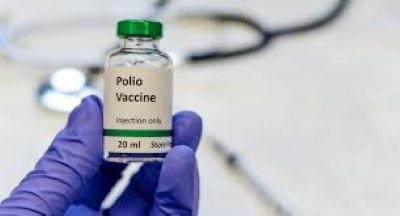The Kwara State Government will flag off the Integrated Polio and Measles-Rubella Vaccination Campaign from October 11 to 20 across the 16 local government areas of the state.
The Executive Secretary of the Primary Healthcare Development Agency, Prof. Nusirat Elelu, disclosed this on Friday in Ilorin during a media dialogue on the introduction of the Measles-Rubella (MR) vaccine and the upcoming polio campaign.
Elelu, represented by Dr. Michael Oguntoye, Director of Primary Healthcare Systems at the Ministry of Health, said the media plays a crucial role in promoting vaccination campaigns in Kwara.
She noted that journalists help in shaping positive social norms, reducing vaccine hesitancy, and countering misinformation. She urged reporters to always verify information from credible sources before publication.
Also speaking, Mrs. Sarat Yunus, the State Immunisation Officer, described measles as a highly infectious viral disease characterized by fever, rash, cough, conjunctivitis, and runny nose.
She explained that measles could lead to severe complications such as pneumonia, encephalitis, and even death, particularly among children and immunocompromised individuals.
“Measles is a leading cause of death among young children worldwide,” Yunus said.
On Rubella, also known as German measles, Yunus explained that while the illness is generally mild, infection during early pregnancy can result in severe birth defects known as Congenital Rubella Syndrome (CRS).
Between 2019 and 2024, Nigeria recorded 94,305 confirmed measles cases and 719 deaths, representing a fatality rate of 0.76 percent, she said, adding that the North-East region reported the highest burden.
She stressed that vaccination remained the most effective way to prevent the spread of the diseases and safeguard children’s lives.
In his remarks, Dr. Usman Danlami, UNICEF representative, urged the media to champion accurate information on vaccination to ensure wide coverage and eliminate misconceptions.
He said: “Media has the power to counter misinformation, reach wider audiences, and keep society informed about emerging diseases. Journalists must remain at the forefront of risk communication to eradicate misconceptions.”
Also, Mr. Ibrahim Mohammad, UNICEF Social Behaviour Specialist, noted that Nigeria has made remarkable progress in the fight against preventable diseases.
He recalled the historic moment when Nigeria was declared free of wild poliovirus, saying the introduction of the MR vaccine now provides an additional tool to protect children and future generations.
“The MR vaccine is safe, government-funded, and available free of charge for all eligible children aged 9 months to 14 years,” he said.
Mohammad emphasized that sustained collective action is crucial to eradicate the poliovirus by 2025. He explained that while the oral polio vaccine has reduced paralysis cases by 99.9 percent globally, at least 95 percent of children under five must be vaccinated in every round to fully defeat the virus.
He expressed concern that Nigeria still has one of the highest numbers of “zero-dose” children in the world, while measles outbreaks and rubella-related risks persist.
He therefore called on the media to amplify accurate information so parents can confidently take their children for vaccination.


